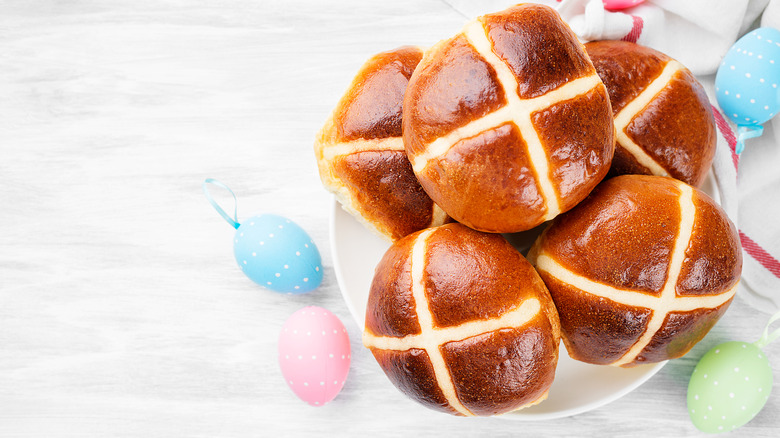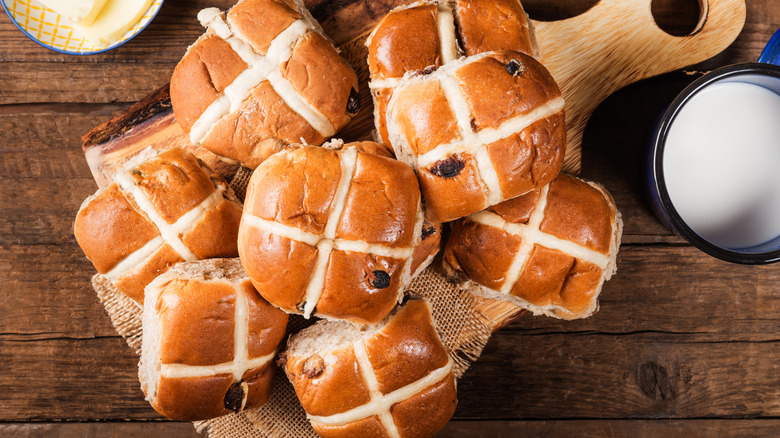Why Hot Cross Buns Are Eaten On Easter
Have you ever pulled apart a warm, steamy hot cross bun? The spiced, yeasted buns are studded with dried fruit and glazed with sweet icing. Hot cross buns appear in bakeries and home ovens in the week leading up to Easter and are traditionally prepared over the holiday. The sweet bread ornaments the Easter dinner table alongside other classic Easter foods such as baked ham, hard-boiled and deviled eggs, and spring vegetables like asparagus and peas. Have you ever wondered why such sweet, delightful bread is limited to the Easter season?
According to Better Homes & Gardens, there are many reasons, but the simplest explanation has to do with tradition. Sweet, yeasted bread is baked in celebration of the Easter holiday all across the world. Hot cross buns are just one of many. "My aunt makes Polish babka," Beth Forrest, a food historian, cited as another example (via Better Homes & Gardens). In addition, Forrest noted that Christians may have even adopted the Jewish tradition of baking challah, a yeasted, butter-rich braided bread, eventually using that dough as a base for bread like hot cross buns.
Hot cross buns are associated with Christianity
Once hot cross buns became popular within Christianity, they became very strongly associated with the religion, explains Smithsonian Magazine. Most people know the defining feature of a hot cross bun to be the mark of a cross. Supposedly, a 12th-century monk was the first to mark the buns after baking them on Good Friday, which immediately precedes Easter Sunday. According to Better Homes & Gardens, by the 1500s, the English attributed magical or healing powers to the buns. It was a superstition Queen Elizabeth I bolstered by limiting sales of the buns to Good Friday, Christmas, and funerals — as they were simply too powerful to consume on an ordinary day.
In response to the Queen's ordinance, people started baking the buns at home so they could enjoy them whenever they wanted. But just as yeasted bread expands in size, superstitions about the buns continued to grow. To this day, some folks hang a hot cross bun from the ceiling on Good Friday, marking their belief in a legend that claims the bread will remain fresh and mold-free until the following year, as Jesus remained unchanged between his burial and resurrection.
If you want to buy into the magic, be sure to share one with a friend this Easter because, according to IrishCentral, the buns are also said to cement friendships. As the old rhyme goes, "Half for you and half for me, between us two, good luck shall be."

